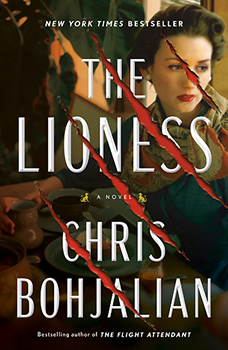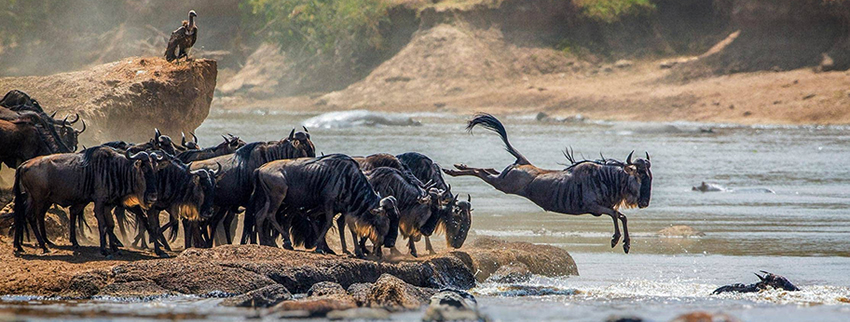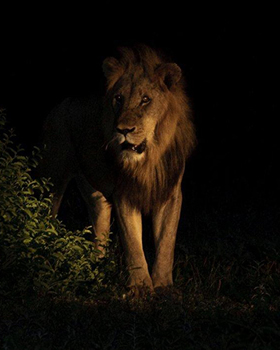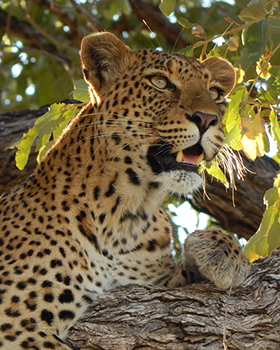

International International Thrills: Chris Bohjalian: Surprise in the Serengeti
Africa Scene: Surprise in the Serengeti
Chris Bohjalian is a very well-known novelist—he is a New York Times bestseller, has been translated into thirty languages, and has had his work adapted for movies and TV series. Last year saw the release of THE LIONESS, his gripping, historical thriller set in East Africa, and the novel is already under development for a TV series. The story takes place in the mid-sixties when Hollywood was at the height of its star-generating powers and the Serengeti in Tanzania was becoming a magnet for wealthy international tourists.
Katie Barstow is a rising movie star and decides to celebrate her wedding by taking her closest family and friends on an African safari led by one of the “great white hunters” from an earlier era, Charlie Patton. In the prologue, we learn that some of the party die on the trip and some survive, but not which is which. Each of the guests has a complex backstory, developed in a series of flashbacks to their intertwining lives in the US.
All goes well until a gang of white men with Russian accents attack the safari, killing a guide and seizing the tourists. It’s clear the attackers aren’t gun shy; this is not a straightforward kidnapping.
In this interview for The Big Thrill, we asked Chris about what compelled him to write about the Golden Age of Hollywood, what drew him to Africa, and what’s next for fans.
What attracted you to writing a historical thriller set in Africa?
I was at a movie matinee in Manhattan in August 2019, and we all know that experience when we emerge from the dark of an air-conditioned theater into blistering summer heat and cerulean skies, and I thought to myself, “My God, I love movies. Why have I never written a Hollywood novel?”
So, I decided I would. But I knew it would be historical fiction, because even in 2019 before the pandemic changed how we watch some kinds of movies (although not all kinds), streaming had impacted the big screen. I was the only person in that matinee in New York City that day.
Hollywood has had plenty of golden eras to choose from, and I chose the 1960s. I grew up in the 1960s and 1970s and had never set a novel in that period. That enticed me, too.
So, the thriller part: I wanted to place my Hollywood characters in a world in which they would be completely out of their element…but wouldn’t realize it right away. I also wanted to explore the legacies of colonialism and imperialism.
And sending Hollywood to the Serengeti—the real Serengeti, not a backlot or studio—seemed like the perfect setting.
Imagine, The Poisonwood Bible meets And Then There Were None. That was my original premise. (Of course, Jordan Moblo, creator of Jordy’s Book Club, came up with an even better pairing after reading THE LIONESS. He called the book, “Evelyn Hugo meets Jurassic Park,” which is seriously perfect.)
Your knowledge of, and sense of place for, the Serengeti in Tanzania comes through very powerfully in the novel. How did you go about researching the area both in the present and as it was in the 60s?
I booked a photo safari.
And then I got really lucky. My lovely bride and I were supposed to go in May 2020…but there were two last-minute cancellations, so we went in October/November 2019—before the pandemic. Who knows when we would’ve gotten there if we hadn’t gone in the autumn of 2019?
My guides thought I was a little ghoulish, at first, because I was always asking about all the ways there are to get killed in the Serengeti. (A safari is very safe if you listen to your guides. I loved every moment.) But then they got into the spirit of what I wanted to write and told me one fun fact and astonishing story after another.
As for the 1960s, I did a very deep dive into the safari literature going back over a century but also focused on the tourism business as it evolved from small numbers of people who wanted to hunt—think Hemingway—to larger numbers of tourists who were there only to take pictures or see the wildlife. I devoured safari and travel magazines from the 1960s.
Katie Barstow’s wedding party consists of nine guests and four tour leaders. Each illustrates different personality facets. Did you plan this to show the different ways they would react once they are on their own in wild Africa or did that develop with the story?
I actually plan very little. I begin with a vague premise, and in this case, it was simply, “Hollywood’s biggest star finally gets married and brings her entourage with her on a honeymoon safari, where it all goes to hell fast.” That was all I knew when I started.
Then it’s all a case of cause and effect.
And even though the book is a thriller, like The Flight Attendant or The Red Lotus, it’s a slow burn. It’s a series of character studies. After all, if characters are going to die, you have to care about them as readers for their deaths to move you.
Katie Barstow is a successful movie star, and while the others are her friends or relatives, she is clearly the leader who calls the shots in the Hollywood scene. Many of the others see her as important to their careers and futures. The Hollywood Reporter even calls her “the lioness in charge of this pride.” Did you know who the “lioness” was when you began the novel?
I did not. In fact, the original title of the novel was The Lions of Hollywood, but I grew concerned that readers would think it was about Hollywood’s earliest days, and the visionaries who first built the studio system.
I did love Katie, however, from the very beginning. I loved her and Carmen Tedesco and Margie Stepanov—the three women on the safari. I had no idea who would live and who wouldn’t, but the fact I wanted them all to survive seemed to me like a good sign.
By the time I was halfway through the first draft, it was clear that any of them could turn out to be THE LIONESS.
While initially the attack looks like a straightforward kidnapping for ransom, it turns out to be much more complicated than that. The gang is led by Russian mercenaries with ties to what was happening in the Congo at the time. And there are still more twists… What drew you to the political issues in central Africa as a backstory?
Tension. There are many kinds of thrillers (and I love most of them), but I certainly enjoy writing international ones with geopolitical intrigue—tales such as The Flight Attendant and The Red Lotus. And once I had chosen the Serengeti and 1964, I could up the stakes even more with the tensions of a US/Soviet Union proxy war.
Charlie Patton is the tour leader who comes from the old “white hunter” school. He has made his life in Africa and knows what it’s about. Yet even he seems to be at a loss when he is alone without resources. In the end, is he as divorced from the “real” Africa as his Hollywood guests?
I always viewed Charlie Patton as a man out of time—or a man whose time has passed.
Which is a good thing. The Africa he knows has changed. Moreover, guests are hunting a lot less (thank God), so he feels further diminished. This meant when I started the novel, I wondered if and how he would make it to the end.
What can we look forward to in your next novel? And would you consider writing another book set in Africa at some point?
My next novel arrives on March 26, 2024: a slow-burn thriller called The Princess of Las Vegas. It’s about a Princess Diana tribute show performer on an off-the-strip Vegas casino that has seen better days, money laundering, organized crime, cryptocurrency, and a body count that just keeps inching up. I love my main character—the damaged woman who makes a career bringing to life a long-dead princess in Las Vegas.
To learn more about Chris Bohjalian, head to: www.chrisbohjalian.com or follow him on social media @chrisbohjalian.
- International Thrills: Fiona Snyckers - April 25, 2024
- International Thrills: Femi Kayode - March 29, 2024
- International Thrills: Shubnum Khan - February 22, 2024






